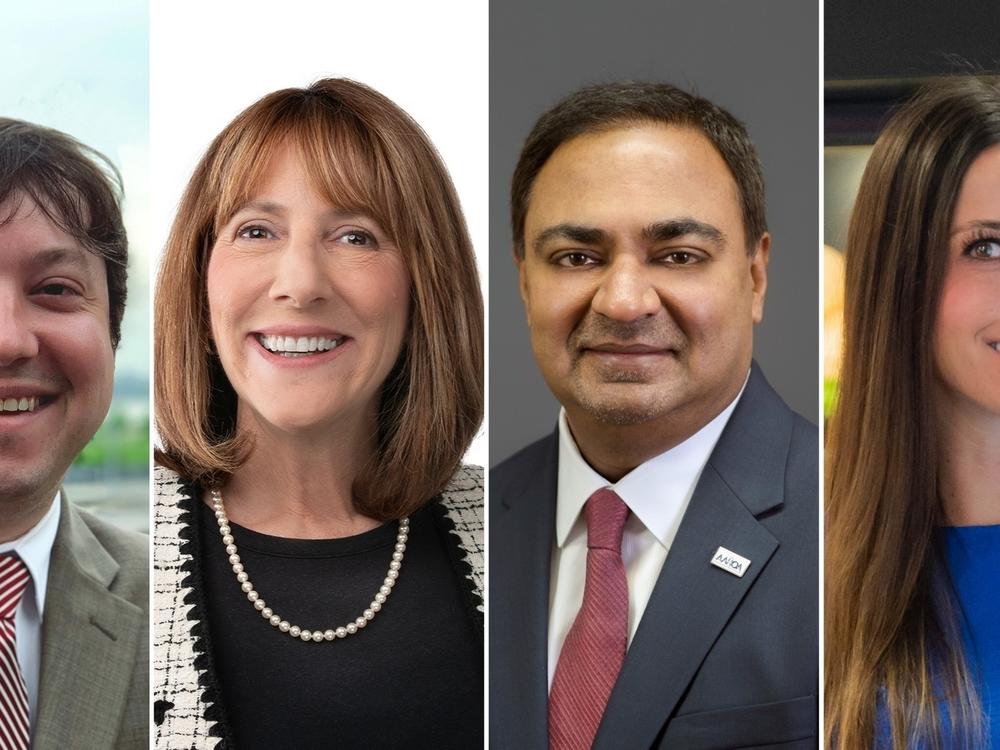Section Branding
Header Content
How voters from different economic sectors see the 2024 election
Primary Content
You're reading the Consider This newsletter, which unpacks one major news story each day. Subscribe here to get it delivered to your inbox, and listen to more from the Consider This podcast.
All Things Considered has been speaking with four "American Indicators" since 2021. They're four people in different parts of the country reflecting different parts of the economy. Now that it's an election year, they spoke with NPR again — this time, to talk about how the economy is shaping their own politics.
1. Travel
Bhavesh Patel is a franchise hotel owner, like Comfort Inn in the Northeast United States.
When he first spoke with NPR in 2021, the country was beginning to emerge from the pandemic recession. At the time, he owned seven hotels in Pennsylvania, New Jersey and Illinois. In the years since, he has had to downsize.
"We sold off three properties, so we're down to four now."
Patel says his line of hotels has continued to struggle in the wake of the pandemic, and that right now, high end hotels are doing much better as the wealth gap has continued to grow in the U.S. He's frustrated by the increase in regulation for his business, and considers himself a moderate Republican. For now, he isn't sure who he'll be voting for.
2. Cost of living
Lee Camp is a housing attorney in St. Louis. In his city, he says, rents keep increasing and the availability of housing is decreasing. After witnessing a wave of clients facing eviction during the pandemic, Camp says that economic pressures have gotten worse across the board.
"I love my career. I love that I get to serve people and work alongside so many inspiring and amazing individuals. But the loan payments are back, and that has certainly changed our financial picture in our household."
When Brooke Neubauer, founder of the Just One Project, the largest distributor of groceries to at-risk individuals in Nevada, looks at the economy today, she says there are plenty of jobs, but says that "what I'm hearing from my clients is that the wages have not caught up with the cost of living."
Neubauer says that her program's spending has gone up tremendously as the price of food has gone up as well. And for her, a candidate that values social services is a priority.
3. Manufacturing
In Georgia, Lisa Winton, co-founder of Winton Machine Company, sees herself as a pocketbook voter – not just for herself, but for the 40 people her company employs.
Winton says last year, the economy looked good — her company had their best year by 20%, a banner year. As a result, she says her company had looked into opening a second factory, but her lease on her current space nearly doubled, and they had to put those plans on hold.
And while her business might be doing better with the help of some Trump-era tax policies, Winton expressed that the Republican party's shift to the right on some social issues is causing her concern.

